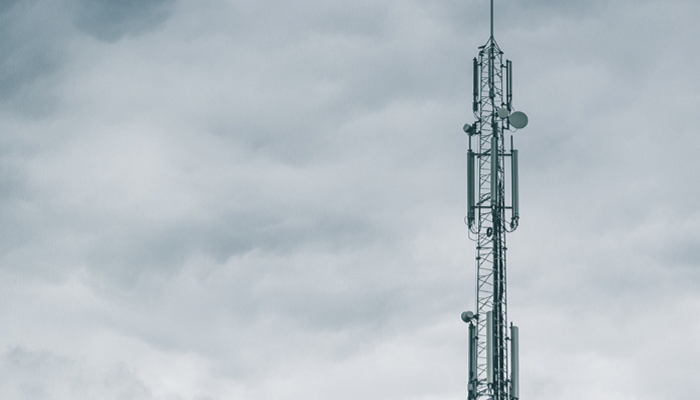
or

Lex Witness in association with The Trade & Regulatory Compliance Practice Desk at Saikrishna & Associates brings to you a detailed analysis on select updates and notifications.

The Ministry of Electronics and Information Technology (“MeitY”), on 6th June, 2022, published proposed amendments to the Information Technology (Intermediary Guidelines and Digital Media Ethics Code) Rules, 2021 (“IT Rules, 2021”), which were notified on 25th February, 2021, for public consultation and stakeholder comments.
As per MeitY’s Press Note, the amendments have been proposed to provide additional avenues for grievance redressal, apart from courts, and new accountability standards for Intermediaries to ensure that Constitutional rights of Indian citizens are not contravened by any “Big-tech platform”.
Applicability: The proposed amendments are directly applicable to all Intermediaries, specifically Big-Tech Platforms and Significant Social Media Intermediaries (“SSMI”).
The proposed amendments go beyond the scope of Section 79 of the Information Technology Act, 2000 (“IT Act”), and introduce high standards of compliance for all Intermediaries, not just SSMIs. The draft amendments effectively require all Intermediaries to put in place an active content monitoring/filtration process to ensure that their users do not host, display, upload, modify, publish, transmit, store, update or share any offending information as prohibited under Rule 3(1)(b). This requirement goes against the principle enshrined in the IT Act that as long as Intermediaries ensure necessary due diligence requirements they will be protected under the safe harbour as they are deemed to not have ‘actual knowledge’ of legal violations within their resources. Further, in order to avoid any liability under the amended IT Rules, 2021, Intermediaries may end up over-censoring and over moderating the content on their platform. Furthermore, an action taken by an Intermediary as part of its filtration process, such as blocking of a user account, may be construed to be a violation of the constitutional right of freedom of speech and expression, thus violating the mandate under the proposed Rule 3(1)(n) of upholding the constitutional rights of all citizens. Reduction of timelines for redressal of complaints places unnecessary regulatory burden on Intermediaries.
In our opinion, the Government’s attempt to provide the Grievance Redressal Committee with “adjudicatory powers” of a court/tribunal without any enabling law is an exercise of excessive delegation, contrary to and in violation of the provisions of the IT Act and the principle of separation of powers enshrined in the Constitution of India.
Interestingly, the IT Rules, 2021 have been challenged before multiple High Courts and clubbed together for consideration by the Supreme Court. Accordingly, amendment of IT Rules, 2021 should, at the very least, be avoided during pendency of the petitions.

The Department of Telecom (“DoT”) in consultation with Ministry of Electronics and Information Technology (“MeitY”), vide notification dated May 24, 2022, decided to exempt the following products (“exempted products”) from the ambit of Mandatory Testing and Certification of Telecommunication Equipment (“MTCTE”) regime: –
As per the existing legal framework the above stated exempted products fall within the below regulatory regimes –
The DoT had introduced the MTCTE Procedure for all telecom equipment, connected or capable of being connected to the Indian telecom network, to undergo mandatory testing and certification prior to sale, import and use in India.
The MTCTE Procedure also states that “the effective dates for certification becoming mandatory for different products are notified by the Government separately.” Accordingly, the exempted products were due to undergo certification under Phase III and IV of the MTCTE regime from 1st July 2022 onwards.
The MeitY mandates certification of the exempted goods under the CRO 2021 which also have to conform to the Scheme-II of Schedule-II of Bureau of Indian Standards (Conformity Assessment) Regulations, 2018.
Due to the regulatory overlap which required the same set of products (exempted products) to seek the necessary certifications from both entities i.e. MTCTE and BIS CRO mandated by the DoT and MeitY respectively, the DoT sought to exempt the products as overregulation was seen to be delaying product launches and increasing the compliance cost for the industry.
The decision of the DoT to exempt certain products from being certified under the MTCTE is laudable and showcases prudent regulatory forbearance. This in line with other reforms undertaken by the DoT such as relaxation of acceptance of test results/ reports from labs accredited by ILAC signatories up to 2 years, increasing the validity of test reports by designated Indian labs up to 5 years, extension of timeline for enforcement of Phase IV, MTCTE, exemption pertaining to various parameters/interfaces of essential requirements under MTCTE, etc. Although the DoT has taken wide ranging reforms in equipment certification, businesses still face onerous compliance related problems like few testing labs, multiple overlapping regulations for testing of same equipment by different agencies like WPC regulations, trusted telecom products under the national security directive on telecommunication sector, and multiple product labelling guidelines under BIS regulations, MTCTE and Legal Metrology (Packaged Commodities) Rules, 2011.
Multiplicity of regulations forces enterprises to shift their focus on compliance and not operating their businesses. Hence, DoT should consider leading an inter-governmental exercise to rationalize the information required from enterprises for the same/similar equipment under different regulations and regulators. This will help achieve a streamlined ecosystem and also enable expeditious launches of latest technological products available in the market.

The Committee will decide upon the disputes arisen from time to time and on representations received, refer substantial issues to the MoEFCC pertaining to the Draft Rules, review and revision of guidelines/EPR targets/ addition of Equipment under Schedule I of the Draft Rules and will have to power to approve other processes and requirements prescribed under the Draft Rules.
The applicability under the Draft Rules largely focuses on relevant entities playing a key role in dealing with e-waste. From a compliance standpoint, stakeholders would have to ensure that they are filing both annual and quarterly returns under the revised responsibilities on the CPCB portal.
Furthermore, stakeholders would also have to ensure that they are not engaged with any unregistered Manufacturer, Producer, Recycler, and Refurbisher. For these purposes, they may consider adding terms to contracts with such entities to ensure compliance with registration requirements on the end of the entities as well.
Additionally, the requirement under the Draft Rules for Manufacturers to ensure that component(s)/part(s) made by different Manufacturers are compatible with each other as far as possible seems to be an overreach and practically difficult to comply with.
It is unlikely that compatibility and interoperability can be ensured in the absence of legislative standards set out by the Government and contractual agreements with other manufacturers where such compatibility can be uniformly tested.
It is worth noting that as a penalty under the Draft Rules, registration may be revoked “in case of any irregularity”. Such a penalty is excessive and should be reconsidered by the Ministry with inputs from the Committee.
The creation of the Steering Committee is definitely an attempt at ensuring greater representation while formulating guidelines and standards. In that regard, representation by the Electrical and Electronic Equipment Producers and Manufacturer Association will be helpful in communicating and representing the interests of Industry players.

On 28th April 2022, the Indian Computer Emergency Response Team (“CERT-In”) issued ‘Directions under Section 70B (6) of the Information Technology Act, 2000 (“IT Act”) enlarging reporting obligations of several categories of corporate organizations in relation to information security practices, procedure, prevention, response and reporting of cyber incidents for Safe & Trusted Internet’ (“Directions”).
The Directions will come into effect after 60 days from the date of issue i.e., on 27th June, 2022 and are applicable to all service providers such as [Virtual Private Server (“VPS”) providers, Cloud Service providers and Virtual Private Network Service (“VPN Service”) providers], intermediaries, data centres, body corporate (“relevant entities”) and Government organisations.
The purpose of introducing the Directions is to stream line tracking and reporting of cyber security incidents and taking required action, which according to the CERT-In becomes a challenge, since the requisite information is not found available/not readily not available with the relevant entities to carry out the analysis and investigation as per the process of law.
The Directions have brought about a significant enlargement in the scope of obligations and reporting requirements for relevant entities as can be seen from the differences between the Directions, and the Information Technology (The Indian Computer Emergency Response Team and Manner of performing functions and duties) Rules, 2013 (“CERT-In Rules 2013”). For instance, the categories of entities have been specifically identified and expanded; a specific mandatory reporting requirement within the 6 hours timeline has been prescribed (which wasn’t the case previously); the types of cyber security incidents that require mandatory reporting have been expanded in Annexure I of the Directions including contemporary technology related concerns like “Ransomware and Cryptominers”, “Fake Mobile Apps”, “Data leaks”, “Attacks on Internet of Things (IoT) devices and associated systems, networks, software, servers” etc.
Offshore entities and servers will also be impacted given that there is a mandatory requirement to enable ICT system logs for a 180-day period (on a rolling basis) within the Indian jurisdiction.
Additionally, maintaining and reporting obligations to CERT-In, relating to KYC Data, Transaction data etc. may have potential privacy related implications given that the Data Protection Bill’ 2021 is still on the anvil and hasn’t been introduced yet. Therefore, there is a vacuum, from a statutory protection of personal data/sensitive personal data perspective.
Tags: Saikrishna & Associates
Ameet Datta is a Partner at Saikrishna & Associates. He is an IP litigator and TMT lawyer with over 22 years of experience and wide ranging expertise across IP Law, Technology law, privacy and data protection law, white collar crime cases around data breaches, and, media & entertainment law specifically in relation to licensing, content aggregation & acquisition, film & music production, distribution/ licensing, format rights, defamation and right of publicity. Ameet has extensive experience with the creative sector in terms of multiple litigations including licensing disputes before the Courts & the Copyright Board. Ameet is closely involved with Copyright laws, Technology regulations and policy matters. In 2010, Ameet appeared as an expert witness before the Indian Parliamentary Standing Committee overseeing amendments to the Copyright Act, 1957. Ameet has been highly ranked as a recommended lawyer for IP Litigation, and, telecoms, media & entertainment by Chambers & Partners (Asia Pacific), WTR1000; as a recommended lawyer for IP litigation by Legal 500, and recommended as an IP Star by MIP
Suvarna Mandal is a Partner at Saikrishna & Associates. She has over a decade of experience in providing trade & regulatory compliance advice to domestic and international clients for understanding and complying with a wide range of national, state as well as sector-specific legislations and regulations in the spheres of telecommunications, technology law, consumer law, environmental law, product compliance and safety regulations (including packaging standards, labels and safety standards), data protection and privacy, media law, advertising regulations, etc. She provides end-to-end compliance counselling to clients across various industries and sectors such as software services, consumer electronics, technology, telecom, media, intermediaries, e-commerce, online value-added services sectors, consumer goods and medical devices. Suvarna also works closely with clients’ Government Affairs team to prepare strategic policy documents, representations and formal communications towards policy development and policy reform efforts with the Government.

Lex Witness Bureau

Lex Witness Bureau

For over 10 years, since its inception in 2009 as a monthly, Lex Witness has become India’s most credible platform for the legal luminaries to opine, comment and share their views. more...
Connect Us:


The Grand Masters - A Corporate Counsel Legal Best Practices Summit Series
www.grandmasters.in | 8 Years & Counting
The Real Estate & Construction Legal Summit
www.rcls.in | 8 Years & Counting
The Information Technology Legal Summit
www.itlegalsummit.com | 8 Years & Counting
The Banking & Finance Legal Summit
www.bfls.in | 8 Years & Counting
The Media, Advertising and Entertainment Legal Summit
www.maels.in | 8 Years & Counting
The Pharma Legal & Compliance Summit
www.plcs.co.in | 8 Years & Counting
We at Lex Witness strategically assist firms in reaching out to the relevant audience sets through various knowledge sharing initiatives. Here are some more info decks for you to know us better.
Copyright © 2020 Lex Witness - India's 1st Magazine on Legal & Corporate Affairs Rights of Admission Reserved